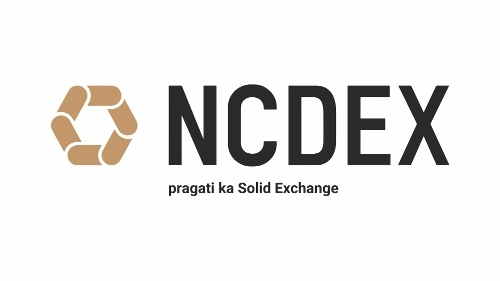What is the stock exchanges?
Stocks, bonds, and commodities are traded in India’s stock exchange. Stock exchanges is a place where both seller and buyer trade in stocks and other financial instruments.To understand this, a stock market index has been created. Stock exchanges in India are regulated by SEBI.
STOCK EXCHANGES IN INDIA
There Are 23 Stock Exchanges In India. But Two stock exchanges in India are the national level stock exchange and both are regulated by SEBI. Apart from these, there are also some stock exchanges in India which are popular.
- National Stock Exchange (NSE)
National Stock Exchange is not an older stock exchange than Bombay stock exchange. but today it is India’s number 1 stock exchange. It was started in 1992.and is headed by Vikram Limaye, the CEO of NSE. in 1994 national stock exchange officially commenced operations. NSE brings advanced technology to trading in India for the first time.

Nse introduced nifty 50 in 1996 as its first index in the market. Nifty 50 l became quite a famous index of the share market in india. Within a few years, NSE started getting recognition at the international level. NSE also launched option trading in the Indian stock market in 2001. After a few years NSE launched some new indices in the market like Nifty next 50, Nifty Midcap150, Nifty Smallcap250 and Mid Small cap 400.
Nse also established a Depository participant as Nsdl for settlement of securities and to hold or transfer stocks electronically.
- Bombay Stock exchange (BSE)
Bombay Stock Exchange is the oldest and first stock exchange of India. Bombay Stock Exchange was established in 1875. The name of Bombay Stock Exchange was Native Share & Stock Brokers Association in 1875.it was renamed Bombay Stock Exchange in 1955. BSE was recognized by the government in 1956. BSE first launched the electronic trading system named BSE online trading system in 1995.

BSE launched its first stock trading index named Sensex in 1986. Bse also offers commodities derivatives like gold, silver, almond, crude oil, steel and cotton. Apart from Sensex, BSE also has some indices BSE 100, BSE 200, BSE 500, BSE MIDCAP, BSE SMALLCAP, BSE PSU, BSE PHARMA, BSE FMCG, BSE Metal.
- Multi-Commodity Exchange
In November of 2003, MCX commenced its activities following its foundation. It was founded to give Indian traders of commodity futures contracts a platform.
Commodity futures trade can be done online with the help of the Multi Commodity Exchange of India Limited (MCX). MCX has grown significantly over the years and is now one of India’s top commodities in its product lineup, including base and precious metals, energy products, agricultural commodities, and more.

The value of several commodity futures contracts traded on the market is tracked by the MCX Commodity Indices, which were developed by MCX. Market participants can use these indexes as benchmarks to evaluate how well the commodities markets are performing.
MCX Launched on stock exchanges in india and made its initial public offering (IPO) in 2012. Through this action, investors were able to contribute to the exchange’s expansion and give its stockholders access to liquidity.
Read This: Rs 10000 Monthly SIP In Mutual Funds How Much Money Will I Get After 10 years?
- Calcutta Stock Exchange (CSE)
A group of brokers who were working under a neem tree close to Dalhousie Square in Kolkata in 1830 established the Calcutta Stock Exchange. It operated as an unorganized stockbrokers association at the beginning.
It was located in Lyons Range, Calcutta’s building 7, since its incorporation in 1908. The Securities Contracts Regulation Act of 1956 granted the exchange legal status and recognized the CSE. Because of this recognition, it was able to operate as a regulated market place where investors and firms could list and exchange securities.

The top 40 equities listed on the exchange were included in the CSE-40 Index, which was the index created by the CSE. The performance of the exchange was tracked by this index, which also offered insights into market patterns.
Larger national exchanges like the National Stock Exchange (NSE) and the Bombay Stock Exchange (BSE) opposed competition for the CSE over time. Its trading volumes and market share also decreased as a result of technical improvements in trading and reforms to regulation.
5. National Commodity and Derivatives Exchange (NCDEX)
The National Commodity and Derivatives Exchange (NCDEX) is a marketplace where agricultural commodities and various other goods are traded in the form of futures contracts. But before we dive into what NCDEX is all about, let’s rewind a bit and understand how it came into existence.

NCDEX Was started in 2003.The Indian government and the Securities and Exchange Board of India (SEBI), which oversees commodity exchanges, both gave the green light for NCDEX to start. After getting all the necessary approvals, NCDEX began its operations in December 2003.
Importance of stock exchanges in india
Stock exchanges in India play a crucial role in the country’s economy. They are like big marketplaces where people buy and sell shares of companies. When Companies need Funding to grow their business. Then Companies sell their shares in the market and people buy stocks And the exchange helps them do all this.
Common people have the opportunity to invest in businesses and share in their success through stock markets. If the business does well in the long run, people who purchase shares may profit. People may increase their savings and build money for the future by doing this.

Securities and market Board of India (SEBI) and other regulators apply strict guidelines and regulation on stock market activities. This protects the strength of the market, protects investor interests, . Investor trust is maintained by regulations that help in the prevention of fraud, manipulation, and unfair activities.
They give companies a place to raise capital, offer opportunities for individual investors, guarantee honest and open trade, and help the economy run smoothly.
What is the work of Stock Exchanges in india ?
The work of the stock exchange is to create a platform for buyers and sellers. Investors trying to purchase shares and sellers trying to sell shares come together at stock exchanges in india. They offer a platform that makes these transactions easy and effective to do.
Deciding share prices is one of the main work of stock exchanges in india. Buyers and sellers in the market interact about this. Issues like supply and demand, firm performance, and financial conditions belong to the many variables that impact share prices.

Stock exchanges block manipulation, fraud, and unfair trading activities in an effort to keep the integrity of the market. They have systems in place to identify and deal with any suspicious behavior that can harm investors or damage the market’s reputation.
In overall, the roles of stock exchanges in india include enabling trading, setting share prices , guaranteeing transparency and honesty, and establishing performance standards for the market. They are crucial to both the overall health of the economy and the financial system.
I am Shivam, a trader, analyst, and passionate blogger with 2 years of experience in the financial markets. Specializing in market analysis and trading strategies, I provide valuable insights aimed at helping both new and experienced traders make informed decisions. Through my blog, I share my knowledge of financial trends, helping readers understand market movements and seize opportunities with confidence. Join me on this journey to enhance your trading skills and achieve your financial goals.

